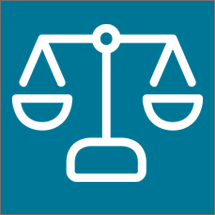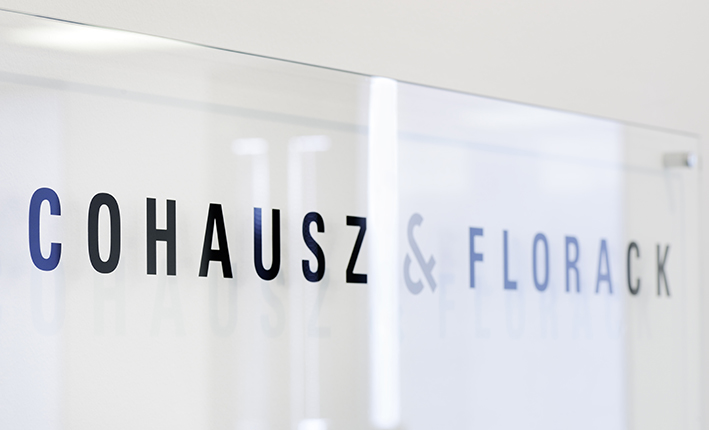In connection with infringement proceedings, the validity of the intellectual property rights involved is often challenged. Such so-called opposition proceedings for patents or trademarks are relatively inexpensive official proceedings. After expiry of the deadlines for these appeals, there is still a possibility of initiating legal proceedings, e.g. in the form of nullity action for patents. As a result of opposition or nullity proceedings, the challenged property right can be revoked, limited, or maintained in its entirety.
Regardless of whether your property right is being challenged or whether you want to challenge the validity of someone else‘s property right – we’ll support you all the way. We’ll represent you before the Federal Patent Court and the Federal Supreme Court. In 2017, we filed close to 400 patent opposition proceedings and roughly 60 patent nullity proceedings as well as more than 400 trademark opposition proceedings.
Granted patents often hinder the activities of competing companies. There are grounds on which a competitor's corresponding patent can be revoked by means of opposition: These include, for example, lack of novelty, lack of inventive step, an unlawfully deprived use of the invention, or an inadmissible extension of the subject-matter of the patent (beyond the content of the application as filed). As an Office procedure, opposition proceedings are usually associated with significantly lower costs than court nullity proceedings. As a rule, each party bears its own costs, which are independent of the value at issue in the proceedings. If you wish to oppose a patent, you must sufficiently argue the grounds before the DPMA or EPO – and above all keep a close eye on the time limit: You must file your opposition within nine months of the publication of the patent grant. It is also permissible to file an opposition via a straw man without revealing the true identity of the opponent – the opponent can thus remain anonymous. We have taken the necessary precautions to ensure genuine anonymity. As a result of opposition proceedings, the patent in suit may be revoked, or it may be maintained in limited or full scope. If the patent is revoked, the patent proprietor retroactively loses all previously valid legal positions arising from the patent (and patent application). Parties to the opposition proceedings can file an appeal against the decision.
In many cases, it is also possible to take action against a competitor's patent by filing a nullity action with the German Federal Patent Court – or through corresponding national proceedings in other countries. The action is still effective even if the nine-month opposition period (from publication of grant of the patent) has already expired. Compared to opposition proceedings, the nullity action is generally more costly, also because the court and attorney fees depend on the amount in dispute. These costs are generally borne by the losing party. Like opposition proceedings, nullity proceedings can lead to the revocation of the patent in suit or to it being maintained either in part or in full. Parties to the proceedings can file appeal against the decision with the Federal Court of Justice. In the case of European patents, once the opposition period has expired, the national patents arising from the European patent can only be challenged by means of invalidity proceedings in the respective countries. Accordingly, nullity actions are generally filed in response to an infringement action brought by the patent proprietor. We would be happy to support you in all steps associated with nullity actions!
Let's assume that one of your competitors has applied for a new trademark that is confusingly similar to your own: Then you, as the owner of the older trademark (which has been applied for or already registered), have the possibility to file an opposition against German trademarks and Union trademarks within three months after publication of the registration of the trademark (for the German trademark) or publication of the application (for the Union trademark). Within this period, the fee of (at least) 250 Euro to the DPMA or 320 Euro to the EUIPO must also be paid. By means of an opposition procedure, you can have the newly registered trademark cancelled in the case of German trademarks or the application for a Union trademark refused.
In addition to the official opposition proceedings, you can also file official cancellation proceedings against the registered trademark at the DPMA or the EUIPO. Depending on the circumstances, you can claim either initial invalidity or a subsequent revocation of the new trademark in these proceedings.
In addition to a cancellation due to existing older rights, a trademark can also be cancelled due to revocation grounds – namely, if after a grace period of five years of use, the trademark has not been significantly used for the registered goods and services within a period of five years. Furthermore, absolute grounds for refusal can also lead to cancellation. These grounds exist, for example, if the trademark is not eligible for protection per se (e.g. a commonly used designation for the goods or services in question) or if an applicant was acting in bad faith when filing the application, for example, if the applicant knows or ought to know that the trademark is already being used by a third party and intends to prevent this.
Further information on opposition, nullity and revocation proceedings, in particular on time limits, fees and formalities, can be found on the DPMA website as well as the EUIPO website.
If the competitor already uses their new trademark, opposition or cancellation proceedings are no equivalent substitute for asserting infringement claims.
Key issues for senior life sciences executives
What rights holders need to know about patent-term extensions in Europe
EPO Enlarged Board of Appeal to clarify the legal basis for the interpretation of patent claims
More clarity in assessing patentability
Decision of the FCJ on legal costs in nullity proceedings in the event of an immediate acknowledgment
Judgment X ZR 59/21 - Anzeigemonitor









